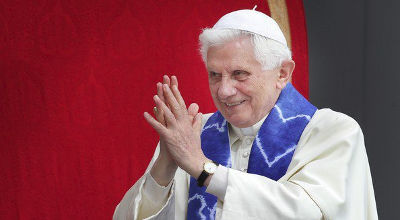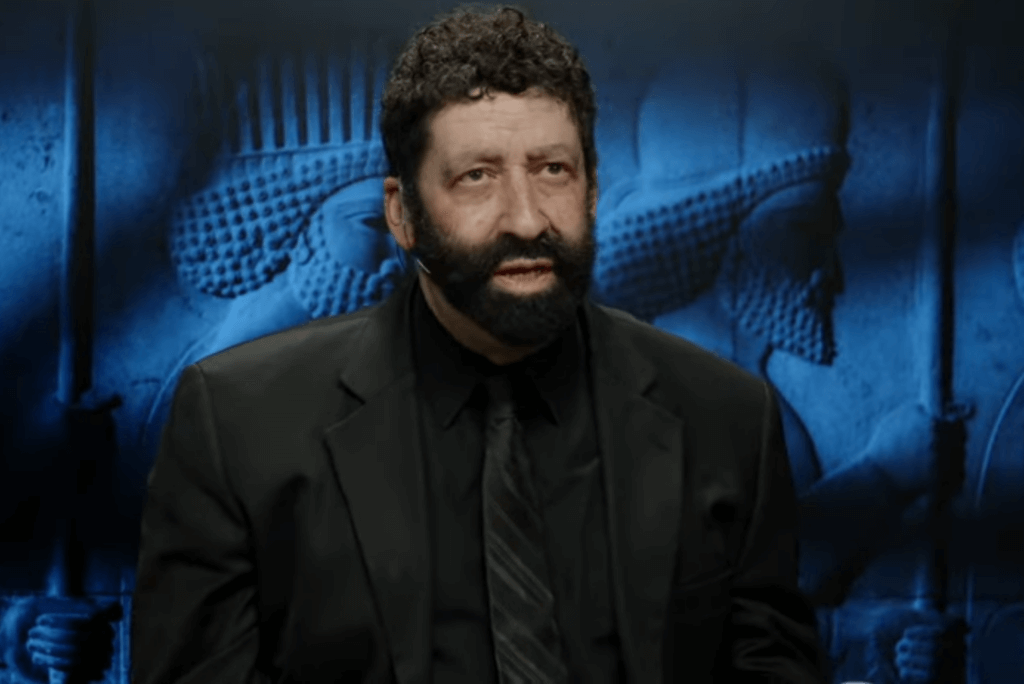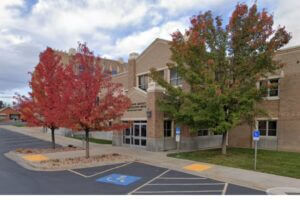Pope Benedict XVI gazed out on the crowd packing the piazza of a small Italian town. Below him lay the bones of Celestine V, the last pontiff to choose to retire; above rose sunlit crags where the “hermit pope” took refuge from a troubled medieval world.
A few weeks after that visit in July 2010 to Sulmona, in the Abruzzo mountains, the then 83-year-old Benedict told a fellow German he would not hesitate to become the first pope since Celestine in 1294 to resign of his own free will, if he was no longer able—”physically, psychologically and spiritually”—to meet the demands of running the billion-strong Catholic Church.
Did the example of Celestine’s “Great Refusal” inspire his ageing successor to consider the alternative to death in office?
The working day Benedict spent in Sulmona, on July 4, 2010, was part of a typically busy schedule for the leader of one of the world’s great faiths; he met hundreds of people and said mass for the 800th birthday of Pietro Angelerio, a monk who lived in local caves before and after his five troubled months as Pope Celestine V during a conflict between Church factions.
Some of Benedict’s words that day may in retrospect betray a sense of weariness and a longing for a cloistered retirement.
In a homily to the crowd of 10,000 in the main square, he said: “A beautiful expression of St. Paul … is also a perfect spiritual portrait of St. Peter Celestine: ‘Far be it from me to glory, except in the Cross of our Lord Jesus Christ, by which the world has been crucified to me, and I to the world.'”
Later, meeting young people at Sulmona cathedral, where a mosaic showing Benedict with Celestine was unveiled, he praised those with the courage of conviction and recalled the pope whose rejection of the Holy See was seen by some as sinful:
“St. Celestine V,” he said, “Was able to act according to his conscience in obedience to God, hence without fear and with great courage even in difficult moments … not fearing to lose his dignity but knowing that it consists in existing in truth.”
He also defended Celestine’s retreat into seclusion: “In his choice of the hermit life might there not have been individualism or an escape from responsibility? This temptation does of course exist. But in the experiences approved by the Church, the solitary life of prayer and penance is always at the service of the community, open to others,” Benedict said.
“Hermits and monasteries are oases and sources of spiritual life from which all may draw.”
‘One Can Resign’
Three weeks after his Sunday in Sulmona, the pope was taking his summer retreat at the papal residence at Castelgandolfo, in the hills outside Rome, and spent hours talking to German journalist Peter Seewald between July 26 and 31.
As recorded in Seewald’s book of conversations “Light of the World”, the former Joseph Ratzinger was asked whether he might resign in the face of criticism over his handling of sexual abuse by priests: “When the danger is great one must not run away,” he said. “Now is certainly not the time to resign.
“One can resign at a peaceful moment, or when one simply cannot go on,” he added. “If a pope clearly realizes that he is no longer physically, psychologically and spiritually capable of handling the duties of his office, then he has a right and, under some circumstances, also an obligation to resign.”
Celestine’s founding of a great monastic order, his humility and piety, at a time when the Holy See was prey to the self-serving ambitions of Europe’s kings, earned him sainthood, even though some called his resignation at the age of about 80 a betrayal of God. A figure condemned to the antechamber of hell in Dante’s poem “Inferno” is sometimes identified as Celestine.
Most today would sympathize with his plight, however, and with the torment in Rome that drove him to renounce the papacy; in resigning, Celestine cited “legitimate reasons of humility and the weakness of my body” for seeking to recover “the consolations of my former life and lost tranquility”.
Or as his successor put it 719 years later, also in Latin: “My strengths, due to an advanced age, are no longer suited to an adequate exercise of the Petrine ministry … I renounce the ministry of Bishop of Rome, Successor of Saint Peter.
“I wish to also devotedly serve the Holy Church of God in the future through a life dedicated to prayer.”
Celestine survived only 18 months after stepping down, dying imprisoned by his successor who feared him as a rival. Some suspect he might even have been killed. Benedict will go to Castelgandolfo, then live in a convent inside the Vatican walls.
Editing by Peter Graff
© 2013 Thomson Reuters. All rights reserved.
See an error in this article?
To contact us or to submit an article






















